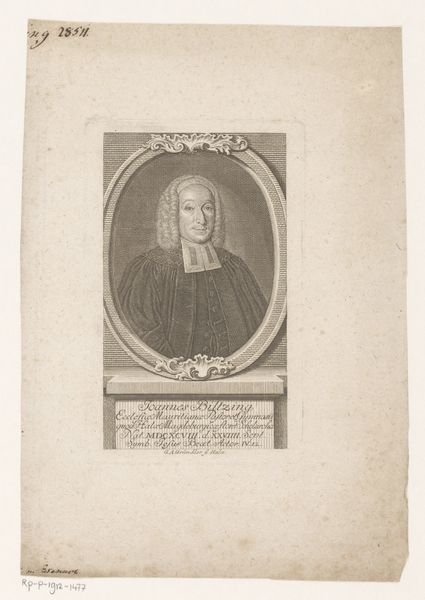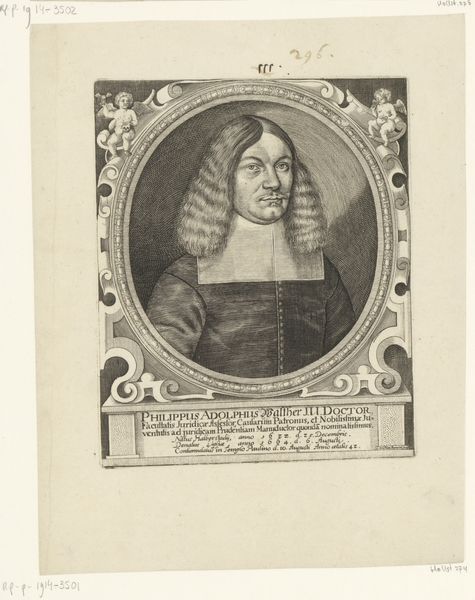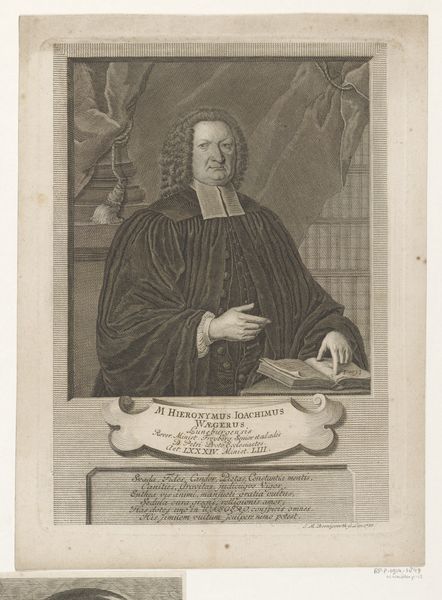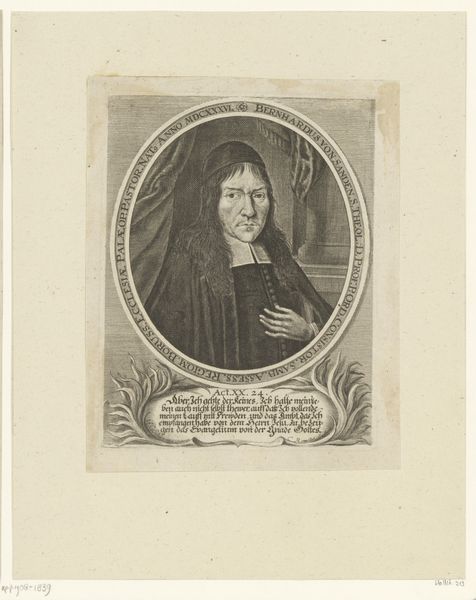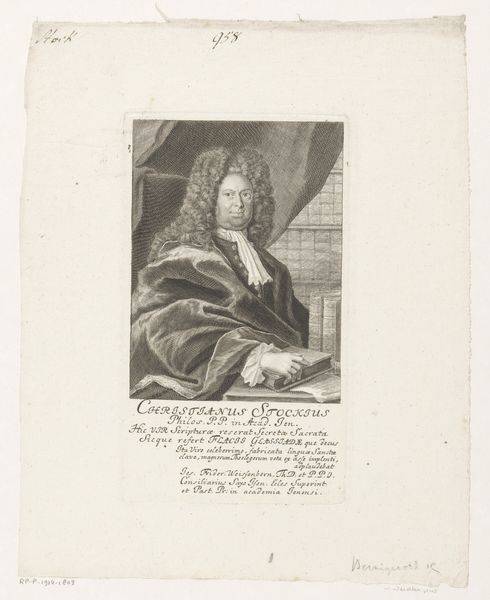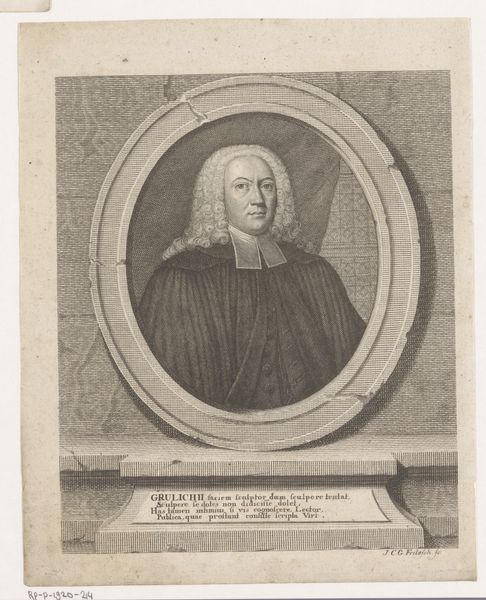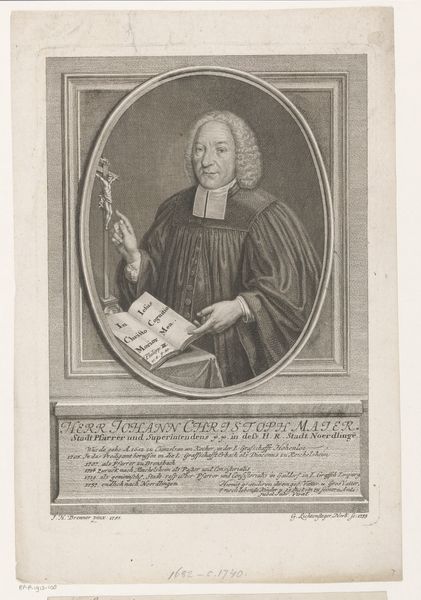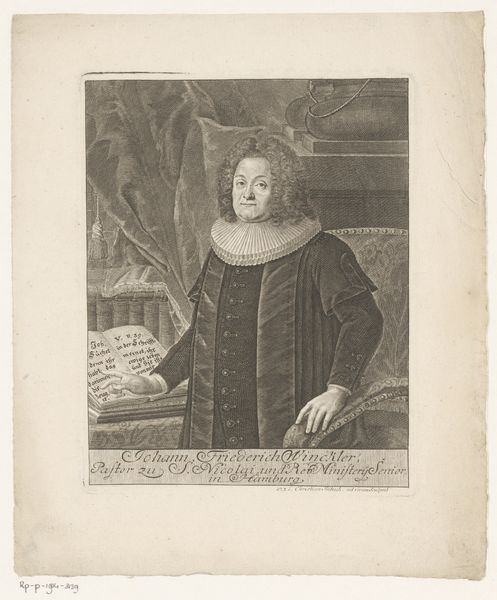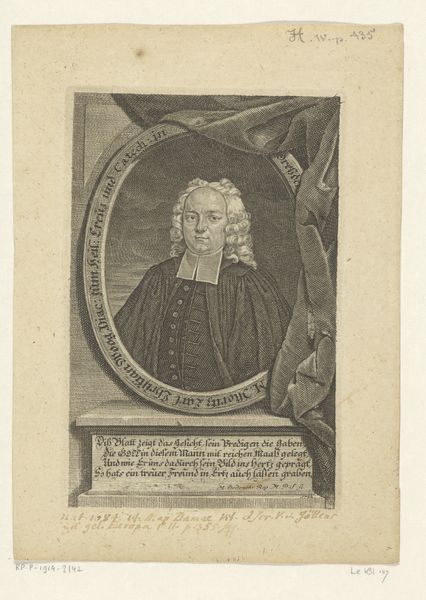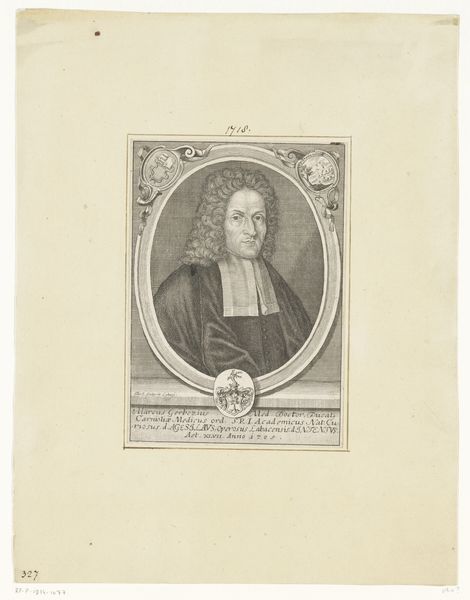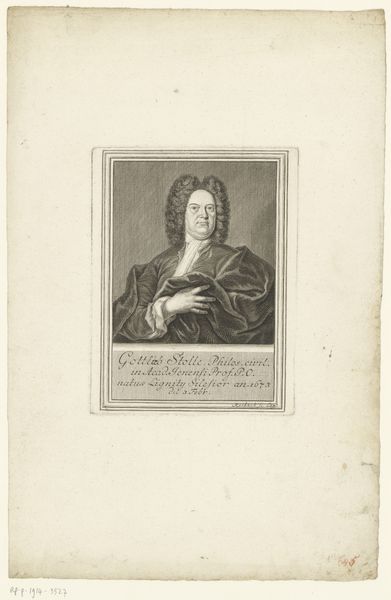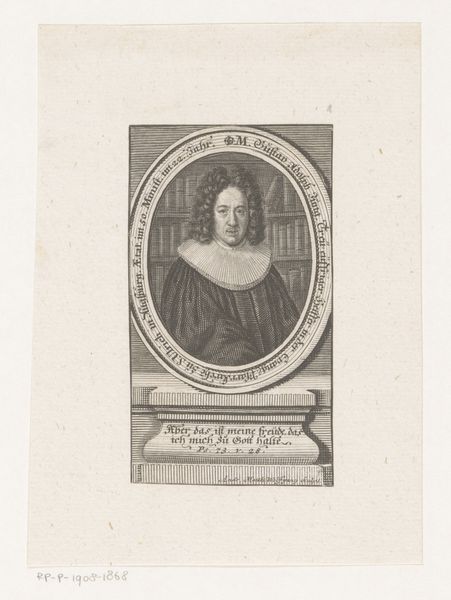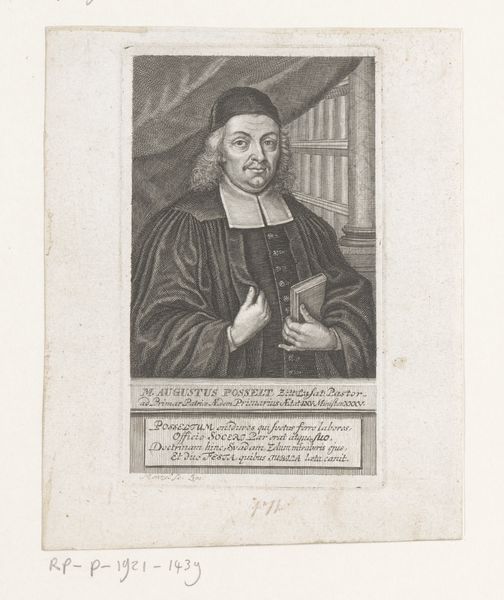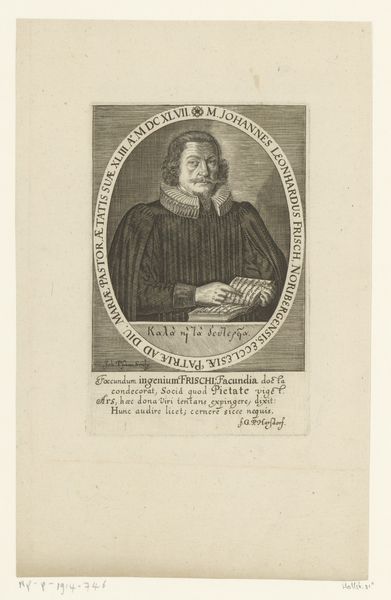
print, engraving
#
baroque
# print
#
old engraving style
#
caricature
#
history-painting
#
engraving
Dimensions: height 215 mm, width 148 mm
Copyright: Rijks Museum: Open Domain
Curator: Here we have a fascinating engraved portrait of Johann Matthäus Englert, dating from somewhere between 1715 and 1777, according to the Rijksmuseum’s records. What’s your initial response? Editor: Austere, almost severe. The stark contrast in the engraving gives the sitter a sense of formality and even a bit of distance. Note the tightly controlled lines, the way the oval frame constrains the figure… it all speaks to a very specific aesthetic. Curator: Absolutely. The use of engraving in this portrait highlights not just the individual, but also the societal role he occupied. Englert was a pastor and professor, important posts in his community, Swinfurth. The print would have served as a declaration of status, reproduced for distribution and memorialization. Editor: The meticulous rendering certainly suggests careful planning and execution. The formal composition creates a powerful focal point: Englert’s face. His gaze, directed slightly off to the side, invites consideration and, I daresay, reverence. Note also the texture achieved simply by varying line density. Curator: Indeed, there's a powerful semiotic structure at play. The book, the quill, the very presentation – it all signals intellect and piety. Consider too, the coat of arms positioned at the top right, another layer solidifying his importance within a specific cultural hierarchy. Editor: But there’s a tension, wouldn't you agree? Despite the serious depiction, there’s also an undeniable human quality—a softness around the eyes. Is that an intention on the part of the artist, to add depth to the formal portrayal? Or maybe an artifact in the rendering technique? Curator: It’s a question worth pondering. What's clear is that the print acted as both an image of a man and as a symbolic statement, operating within the complex framework of social power in eighteenth-century Europe. It embodies its cultural period beautifully. Editor: And in this sense, the work presents such an interesting glimpse into a world where image-making was so closely tied to identity and public role. This artwork gives such context, a world translated into stark monochrome for us.
Comments
No comments
Be the first to comment and join the conversation on the ultimate creative platform.
